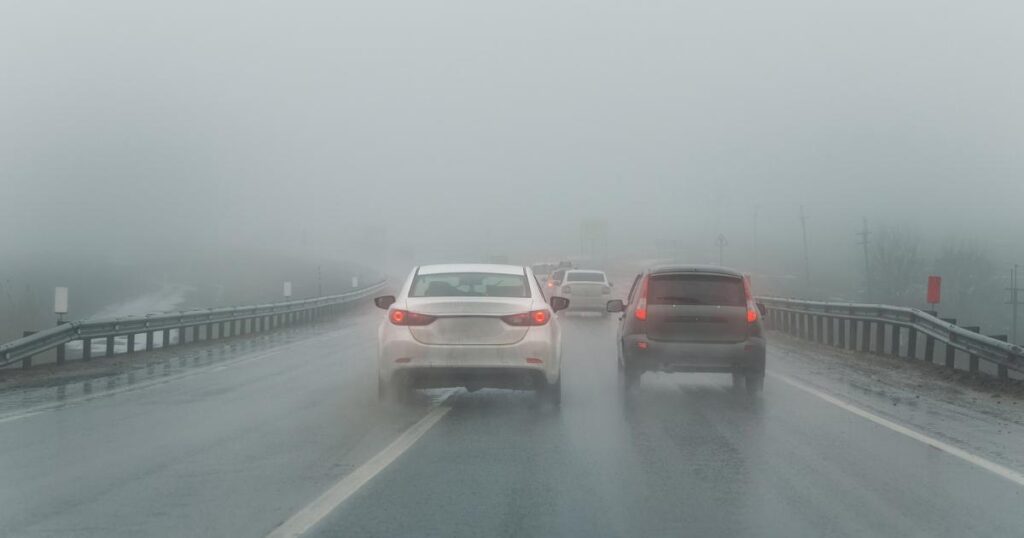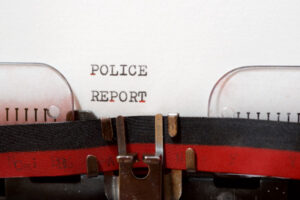Featured Article

Weather-related accidents are a common occurrence on Texas roads, and with unpredictable conditions like rain, snow, and fog, driving can quickly become hazardous. The Law Office of David M. Kennedy, a personal injury firm based in Sherman, Texas, often deals with cases involving weather-related crashes. Understanding who is liable in these situations can help injured individuals protect their rights and pursue compensation for damages.
In this blog, we will break down liability in accidents caused by rain, snow, and fog, with a focus on how Texas law approaches these unique cases.
The Impact of Weather on Road Safety
According to the National Highway Traffic Safety Administration (NHTSA), around 21% of all vehicle crashes in the United States are weather-related. These accidents occur on wet pavement, during rain, snow, sleet, or in foggy conditions. Rain alone accounts for a significant 46% of weather-related crashes, while fog contributes to 3%, and snow leads to 17%. Given the varied climate in North Texas, drivers often encounter all these conditions during different parts of the year, making the roads particularly treacherous.
In weather-related accidents, liability isn’t always straightforward. Even though adverse conditions play a role, determining fault often comes down to how well drivers adapted to the situation. In Texas, drivers are expected to exercise caution and adjust their driving behaviors when weather creates hazardous conditions.
Liability in Rain Accidents
Rain, especially sudden downpours common in North Texas, can make roads slick and reduce visibility, causing an increased risk of accidents. Wet roads lower tire traction, leading to longer stopping distances and a greater risk of hydroplaning. Drivers who fail to account for these dangers could be held liable if their negligent behavior causes an accident.
Some behaviors that may indicate negligence during rain include:
- Speeding on slick roads
- Failing to use headlights in reduced visibility
- Following other vehicles too closely
- Failing to yield at intersections
- Driving with the cruise control on in heavy rain or puddled surfaces
Under Texas law, drivers must adjust their speed and keep a safe distance from other vehicles in rainy conditions. If a driver doesn’t follow these precautions and causes an accident, they could be found at fault, even if the rain played a significant role.
Liability in Snow and Ice Accidents
While North Texas doesn’t experience snowstorms as frequently as other parts of the country, when winter storms do occur, they often result in dangerous road conditions due to drivers’ unfamiliarity with snow and ice. Black ice and frozen roads are particularly hazardous, often leading to multi-car pileups or serious accidents. The Texas Department of Transportation (TxDOT) has recorded over 30,000 crashes annually during icy or snowy conditions across the state.
In accidents involving snow and ice, drivers are expected to take extra precautions. If a driver fails to do so, they can be held liable for any damages caused. Some actions that may constitute negligence in these conditions include:
- Driving at unsafe speeds for the weather conditions
- Failing to use proper winter equipment, such as snow tires or chains (when applicable)
- Braking too hard, which can cause a loss of control on icy roads
- Following too closely for the conditions
It’s important to note that in icy or snowy weather, the standard rules of the road still apply. If a driver runs a red light or stop sign and claims that they couldn’t stop due to ice, they can still be found at fault for the accident. Drivers are responsible for maintaining control of their vehicles, regardless of weather conditions.
Liability in Fog Accidents
Fog presents a unique challenge for drivers, as it drastically reduces visibility. The Federal Highway Administration (FHWA) notes that fog is responsible for around 38,700 crashes annually in the United States, causing approximately 600 deaths and 16,300 injuries. In foggy conditions, drivers are expected to reduce their speed, use low-beam headlights, and maintain a greater following distance.
If a driver fails to take these precautions, they may be found liable in a fog-related accident. For example, a driver who speeds through dense fog or tailgates another vehicle is likely to be deemed negligent if an accident occurs.
However, fog-related accidents can be complex, as multiple vehicles are often involved, making it more difficult to assign liability. In these cases, Texas law allows for comparative negligence, meaning that more than one party can share fault for an accident. If you are involved in a fog-related crash, it’s important to work with an experienced attorney like David M. Kennedy to assess the circumstances and pursue appropriate compensation.
Proving Liability in Weather-Related Accidents
In personal injury cases involving weather-related accidents, proving liability requires more than just demonstrating the weather conditions. Victims must show that the at-fault driver failed to act reasonably given the conditions. This is where a skilled personal injury attorney can make a difference, one who is prepared to address the ‘act of God’ defense that is used in weather-related accidents.
At The Law Office of David M. Kennedy, we have extensive experience investigating the causes of weather-related accidents and holding negligent drivers accountable. From gathering evidence like police reports, witness statements, and crash scene photos to working with accident reconstruction experts, we work tirelessly to build a strong case for our clients.
Seeking Compensation After a Weather-Related Accident
If you’ve been injured in a weather-related accident in North Texas, you may be entitled to compensation for medical expenses, lost wages, property damage, and pain and suffering. However, weather-related cases can be more complicated than standard accidents due to the involvement of external factors like rain, snow, or fog.
As a personal injury lawyer, David M. Kennedy is dedicated to helping victims navigate the complexities of these cases. By carefully analyzing the circumstances of your accident and negotiating with insurance companies on your behalf, we strive to secure the best possible outcome for our clients.
Conclusion
While weather conditions like rain, snow, and fog can make driving more dangerous, they don’t absolve drivers from their responsibility to exercise caution. If you’ve been injured in a weather-related accident, The Law Office of David M. Kennedy can help you understand your rights and pursue the compensation you deserve. Don’t just assume that mother nature was the only one at fault for the accident. Contact us today for a free consultation.




